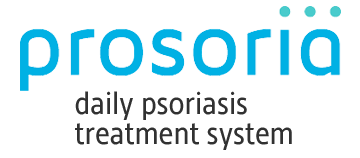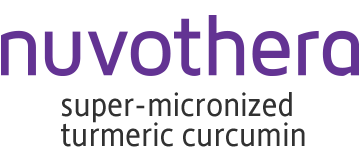Is Psoriasis Curable?
28 Oct 18

Psoriasis is the most common immune-mediated disease in the country, affecting upwards of 8 million Americans. That’s about 2.2 percent of the country’s total population. About 125 million people in the world (about 2 to 3 percent of the global population) have psoriasis.
Psoriasis is most often characterized by scaly, red patches of skin that are often itchy and painful. This is caused by inflammatory changes in your immune system that speed up the life cycle of your skin cells. That sudden increase in cell turnover causes new skin cells to build up over old skin cells, creating the patches, lesions, and scales.
People with psoriasis can agree that the skin disease can become a huge burden on your overall wellbeing and general livelihood. This begs the question, “Is psoriasis curable?” Read on to learn more about psoriasis, whether or not it’s curable, and how a treatment plan can help you manage symptoms of psoriasis.
Types of Psoriasis
There are several different types of psoriasis. The six main forms of psoriasis you will see include:
- Plaque – The most common form of psoriasis, plaque psoriasis, is characterized by raised patches of red skin with silvery white scale-looking build up. These patches can appear anywhere, but most often show up on your knees, elbows, scalp, and lower back.
- Guttate – Guttate psoriasis appears as small red dots all over the body. This is generally more common in kids and young adults who have recently had a strep infection.
- Inverse – Inverse psoriasis appears in body folds, like under your armpits, behind the knees, and around your groin. Lesions appear more as smooth red patches of inflamed skin that may worsen with sweat or physical contact. Inverse psoriasis can be triggered by bacterial or fungal infections.
- Pustular – Pustular psoriasis comprises pus-filled blisters surrounded by red, patchy skin. This can appear on any part of the body but is most common on the hands and feet.
- Erythrodermic – Erythrodermic psoriasis is the rarest form of the skin condition. It’s characterized by burning red patches spread all over the body. It can cause intense itching and pain with skin peeling off in sheets.
- Nail - Nail psoriasis is common among people who already suffer from skin psoriasis symptoms. This type of psoriasis can resemble that of a fungal infection and can affect either nails, toenails, or both. Nail psoriasis symptoms can include loosening or crumbling of the nail, thickening of the white skin under the nail, yellow-red nail discoloration, and more.
It’s important to note that while many may wonder, “Is psoriasis contagious?” it is in fact not. You cannot contract the skin condition from someone who has psoriasis nor transfer it to someone if you have it.
About Psoriatic Arthritis
Although external psoriasis symptoms are usually characterized by skin lesions, blisters, and scaly patches, it is not purely a skin disease. In many cases, it can cause your joints to swell and stiffen, which can potentially develop into psoriatic arthritis. About 30 percent of people who are diagnosed with psoriasis will eventually develop psoriatic arthritis. Psoriatic arthritis can be mild or severe, but if left untreated, it can cause ongoing damage to the joints. Symptoms of psoriatic arthritis include:
- General fatigue
- Swollen fingers and toes
- Tenderness and swelling in your tendons
- Reduced range of motion
- Changes in your nails
- Pain and redness in your eyes
Is There a Cure for Psoriasis?
Unfortunately, there is no known cure for psoriasis. Part of that simply comes from not fully understanding what causes psoriasis beyond factors related to genetics. The current theories suggest that the disease is caused by problems with T cells and neutrophils. These both play integral roles in the immune system.
Normally, your T cells defend your body against bacteria, viruses, and other harmful microbes. In those with psoriasis, the T cells end up attacking healthy skin cells as if they were trying to fight off an infection or heal a wound.
These overactive T cells also contribute to a flood of neutrophils, a type of white blood cell. Neutrophils travel into your skin and cause inflammation, redness, and pus in pustular psoriasis.
Treating Psoriasis
Although there is no present-day answer for what cures psoriasis, there is a wide range of treatments available that can help you manage your symptoms to the point of them being mild or nonexistent. Because psoriasis treatments are so varied, what works for one person may not work for you. You may also need to work with a combination of treatments, depending on the severity of your psoriasis.
So, is mild psoriasis curable? Topical treatments tend to be your first and main line of defense. With mild and moderate forms of psoriasis, topical creams, lotions, and oils may be enough to reduce inflammation and itching, slow down skin cell growth, and help to slough away flaky dead skin cells.
Light therapy is another common treatment of psoriasis. This involves exposing your skin to natural or artificial sunlight in controlled amounts and time periods. With consistent light therapy, you may be able to slow down skin cell turnover and reduce inflammation and scaling. Light therapy also includes laser treatments.
Systemics refer to any oral or injected medications. These are often prescribed for severe psoriasis or forms that are resistant to other types of psoriasis therapy. However, some systemics can come with serious side effects, so they may have to be alternated or used for a short time. Systemic treatments work in a variety of ways and can help to reduce inflammation, suppress excess skin cell production, or normalize your immune system.
Biologics are among the newest types of treatments for severe psoriasis today. Biologics are made from proteins produced by live human and animal cells. These biologics are administered intravenously helping to block parts of the immune system process that drive psoriasis. This treatment targets certain types of immune cells, helping to break down the psoriasis process.
Psoriasis may not be curable yet, but the wealth of treatments available can help you manage symptoms and regain control over your own body. Talk to your doctor and remember that there are numerous effective treatment options out there for you.
If you have any more questions about psoriasis or how you can treat it, please visit Prosoria for more information!
Sources:
- https://www.psoriasis.org/content/statistics
- https://www.mayoclinic.org/diseases-conditions/psoriasis/symptoms-causes/syc-20355840
- https://www.psoriasis.com/what-is-psoriasis
- https://www.psoriasis.org/about-psoriasis
- https://www.psoriasis.org/about-psoriatic-arthritis
- https://www.livescience.com/42285-psoriasis-skin-treatment-cure.html

